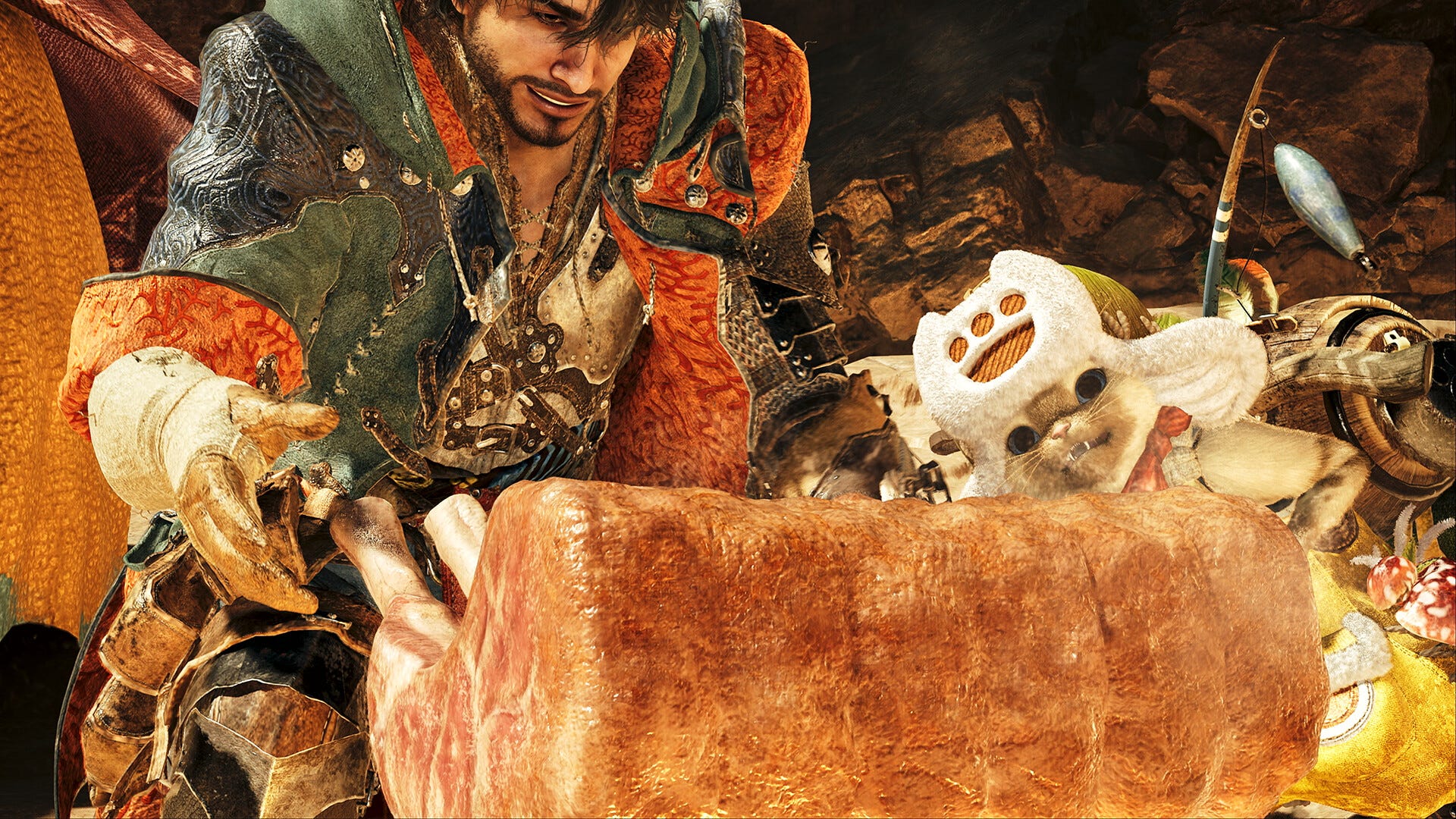Opus review: Ayo Edebiri and John Malkovich face off in offbeat thriller
'Opus' review: Ayo Edebiri and John Malkovich in A24's film about the cult of celebrity, and celebrity cults.


A cult-centric popstar thriller that quickly falls apart, Mark Anthony Green’s debut feature, Opus, features hints of ideas about journalism and celebrity that never fully come to the fore. A tale of a music writer attending the listening party of a long-awaited return album from an ‘80s mega star who’s been in hiding for the past two decades, the film’s supposed eeriness is marred by dramatic disconnect. Even its basics are hard to follow, when tracking them should be the easiest thing in the world.
As a former GQ columnist, Green brings occasional insight to magazine newsroom politics. However, the rest of his story is visually and narratively malformed. The performances are mostly enjoyable, especially John Malkovich as the aforementioned returning glam rock idol, but they end up in service of a deeply confused movie that has little, if anything, to say.
What is Opus about?
An early scene in the film, a casual lunch date between novice music writer Ariel Ecton (Ayo Edebiri) and her long-time friend Kent (Young Mazino), establishes core tenets about the former’s character. She’s talented but withheld, never letting anyone close to her as she guards a persona she fears is unremarkable and middle-of-the-road. Unfortunately, neither Kent nor this entire emotional setup ends up factoring into the movie in the slightest, which quickly moves on to its tale of an icon’s surprise return after decades away.
The character dynamic that really matters is Ariel, a Black woman, being overshadowed and dismissed by her smiling, white male boss Stan (Murray Bartlett), especially when the two of them are among a select handful invited to visit the isolated ranch of the returning Moretti (Malkovich), a pop icon whose stature the film portrays in amusing ways. After his comeback album is announced in a YouTube video by his long-time publicist (Tony Hale), the singer’s history is neatly condensed for us in the form of a globe-spanning montage celebrating his return, made up of news stories and social media posts which heavily center his posters, famous bobbleheads and other valuable memorabilia. This makes his presence — and really, his absence — feel tactile. All of this set to his iconic ‘80s dance ballad, “Dina Simone,” a fictitious earworm sung by Malkovich himself. It’s not hard to see why he was once so beloved.
Alongside paparazzo Bianca (Melissa Chambers), influencer Emily (Stephanie Suganami), talk show host Clara (Juliette Lewis) and former music rival Bill (Mark Sivertsen), Ariel and Stan receive invites by courier, after which they’re flown out to a nondescript desert, then bussed 50 miles to Moretti’s sprawling, gated compound, home to a creativity-worshipping faith known as the Levelists. Part spa, part Jonestown, and part Michael Jackson’s Neverland Ranch, the dustbowl getaway is populated by acolytes of various ages all dressed in navy blue robes. This cult-like group serves at Moretti’s beck and call, with actors like Amber Midthunder and Tatanka Means handing the guests strict instructions on the weekend’s activities — a dinner, a massage, nothing too out of the ordinary — while younger, pre-teen members of the pseudo-religious fanhood engage in painting and other arts and crafts.
The arriving journos are also stripped of their electronics to “preserve the integrity of the experience,” one of several red flags that only Ariel seems attuned to. However, as members of their group go missing one by one, the film’s framing of these supposedly strange events doesn’t quite serve this Get Out-esque narrative, in which only Ariel sees through the Matrix-code of Moretti’s constructed reality.
The cult saga in Opus is visually malformed.
The biggest flaw in the film’s construction is the blurry boundary between what the camera sees and what Ariel notices. Instructed by Stan to take notes when she should be writing her own article, Ariel isn’t blinded by Moretti’s celebrity and jots down her observations on the surrounding sycophancy. However, what she finds off-putting is, more often than not, the result of mere quirks that the other guests aren’t necessarily wrong to dismiss, while any doubts about the group’s safety arise through information only the audience is given. And yet, despite this disconnect, we’re expected to invest in Ariel’s attempts to convince Stan and the others that something strange is afoot; we know that she’s right, but she has little reason to believe the things she’s saying, so it can’t help but feel like crying wolf.
There are certainly strange happenings in the movie’s margins, á la Ari Aster’s Midsommar, but rather than the film’s protagonist being slowly drawn into a mystery, or discerning oddities no one else sees, the cult’s more disconcerting behavior is visible only to the camera, and thus to the audience, but not Ariel. Sometimes it’s not even clear what, if anything, she actually sees even when faced with disturbing revelations (like the fate of a fellow guest), owing to off-kilter visual framing and editing that yanks us away from the action far too quickly. While rightly she notes the Levelists’ beliefs as out of the ordinary — they worship creativity above all else, and consider it divine — the premise as seen through her eyes is never quite unnerving.
The movie’s aesthetic shortcomings pile up the further it goes on. Each guest is chaperoned around the compound by a specific cult member, and when skirmishes arise between Ariel and her assigned Levelist, an entire fight scene unfolds off screen. Not long after, a chase scene on ATVs hops and skips around in time and space, as though the production had either failed to shoot enough footage for these moments, or they had to be somehow rescued in the edit, and this was the best possible outcome. It’s bizarre to watch, given how incomplete the movie feels, and how it obscures the one tenet that ought to be central to a story such as this: the controlled reveal of information.
Opus has no bigger picture.
The flaws in the film’s moment-to-moment construction go hand-in-hand with its lack of a macro point of view. The film is, on its surface, akin to Mark Mylod’s The Menu, wherein people semi-related to the world of a renowned artist (Ralph Fiennes’ gourmet chef Julian Slowik) are drawn into an elaborate series of games or traps stemming from his warped worldview. While Opus pulls back its curtains in much the same way, what it reveals is shockingly empty.
Malkovich adds enigmatic layers to Moretti as best he can — the actor appears to have had fun in the role — but at no point does the character seem like he has any kind of coherent plan or outlook. When harm inevitably comes to the guests, it often seems random and coincidental, and when it’s time for Moretti to express his twisted reasoning, the result is a series of long, drawn-out monologues that barely connect to the events as they unfold on screen. All of this makes you ask: What is Opus even about?
There are, on occasion, hints of racial subtext — the professional dynamic between Ariel and Stan is realistic and familiar — but none of this extends to the larger premise, given the cult’s multiracial makeup. Moretti may be an esoteric figure, but even his late-era-Kanye musings on genius and celebrity feel distinctly ordinary. No real-world element in the film is ever magnified enough to function as satire, leaving Opus in a lukewarm middle ground, where ideas never evolve, and character drama seldom extends beyond what someone (usually Ariel) observes or experiences in-the-moment.
The real tragedy here is that the premise of Opus has potential. The world of celebrity worship is fertile ground for a tale of religious fervor, and Edebiri has the kind of frank, matter-of-fact timing that feels tailor-made for emphasizing the bizarre. However, the film’s scattered pieces never allow even its minor strengths to enter the spotlight for too long. The little that works ends up shackled by lousy, scattershot filmmaking that saps the movie of all tension, insight, and fun.
Opus was reviewed out of the 2025 Sundance Film Festival.














































































